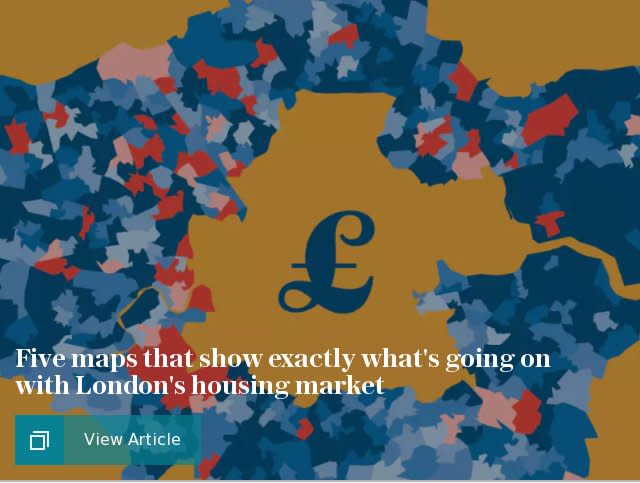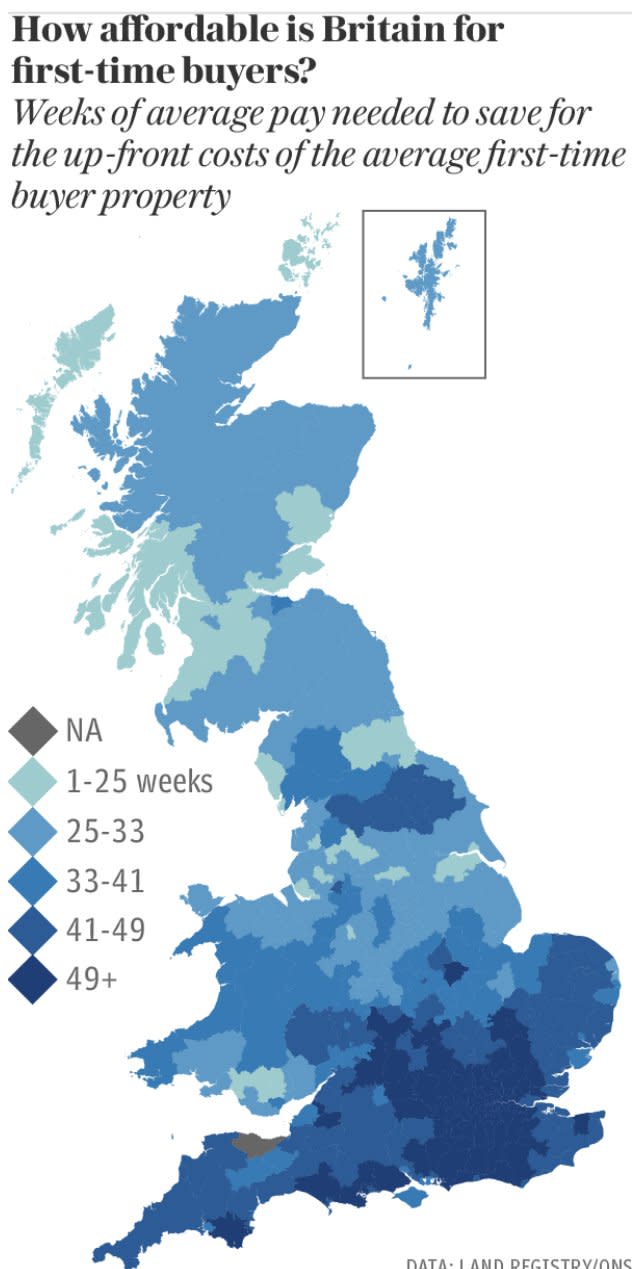British families are spending three times as much on housing as they were 50 years ago

The average share of income that Britain’s families spend on housing has trebled over the last 50 years, with young people having to make do with longer commutes and smaller rented accommodation, according to a new report.
Each subsequent generation since the Second World War has had to spend a greater proportion of their income on housing, think tank the Resolution Foundation found.
The pre-war generation spent just 7pc of their income on their home at the age of 30. But this figure had more than doubled for baby boomers, born between 1946 and 1965, who spent 17pc of their income on housing at that age.
It has now reached a record high for millennials, those born between 1981 and 2000, who currently spend almost a quarter of their income on housing at age 30.

While housing costs have escalated, the baby boomer generation has been the biggest beneficiaries of improvements in the security and quality of housing that have taken place over this time as home ownership spread, the Resolution Foundation said.
Those born in the late 1940s have enjoyed the highest ownership rates over the course of their lives, with each five-year cohort after them doing worse than their predecessors.
Home ownership rates among young families born in the early 1980s are now around half that of those born 30 years earlier at the same age.

And while housing has been a growing drag on living standards for everyone, increased home ownership has boosted the wealth of older generations, as well as their income in later life as a record proportion now own their homes outright.
In contrast, younger generations are being rewarded for the record amount they have to spend on housing with lower home ownership, greater insecurity and smaller homes that are further from where they work.
The report shows that there are now as many young families aged 25-34 living in the private rented sector as owning a home or living in the social rented sector combined.
It also finds that average floor space has fallen by 4pc since 1996 for people aged under 45, while it has increased by 2pc for those aged 45 and over.

Young people today are also compromising on location, with millennials set to spend an extra 64 hours a year commuting to work by the age of 40 compared to baby boomers.
The Resolution Foundation report, called Home Affront, warned that while the passing of the financial crisis means some young households will be able to become homeowners, the outlook for younger generations is on course to continue deteriorating.
Even in an optimistic scenario in which home ownership for young people ‘catches up’ with the generation before them, the age at which most families will own their own home could be delayed until their 40s – a decade later than when most baby boomers got onto the housing ladder.
Lindsay Judge, senior policy analyst at the Resolution Foundation, said: “The shock election results of the last 15 months have shown that significant discontent exists about the direction that Britain is heading and housing is huge a part of this anxiety. Across the generations, many are worried about why today’s young adults have it so hard when finding a secure place to live.”
She added that it was “vital” that political leaders recognise the scale of Britain’s housing crisis.


 Yahoo Finance
Yahoo Finance 